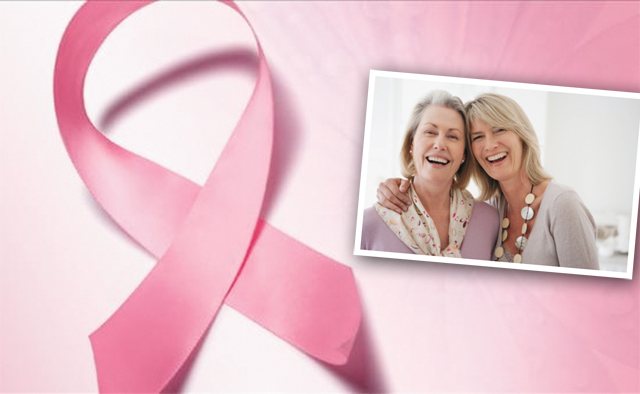 What is Breast Cancer?
What is Breast Cancer?
Breast cancer is the uncontrolled growth of breast cells. The term “breast cancer” refers to a malignant tumor that has developed from cells in the breast. Over time, cancer cells can invade nearby healthy breast tissue and make their way into the underarm lymph nodes, small organs that filter out foreign substances in the body. If cancer cells get into the lymph nodes, they then have a pathway into other parts of the body. The breast cancer’s stage refers to how far the cancer cells have spread beyond the original tumor.
What are the Risks of Developing It?
Only 5-10% of cancers are due to an abnormality inherited from your mother or father. About 90% of breast cancers are due to genetic abnormalities that happen as a result of the aging process and the “wear and tear” of life in general. Additionally, women who have their first child after about 30 have an increased chance of developing breast cancer. Women whose breasts were exposed to radiation during radiation therapy before age 30 also have a bigger chance. Some studies show that alcohol and dietary factors may also play a part in determining a woman’s chance of developing breast cancer.
What are the Symptoms?
When breast cancer first develops, there may be no symptoms at all. But as the cancer grows, it can cause changes that women should watch for:
- Swelling of all/part of the breast
- Skin irritation or dimpling
- Breast pain
- Nipple pain or the nipple turning inward
- Redness, scaliness, or thickening of the nipple or breast skin
- A nipple discharge other than breast milk
- A lump in the underarm area
Even though they may not be cancerous, it’s important to get any breast changes checked out promptly by a doctor.
Planning Your Treatment
After a breast cancer diagnosis, you and your doctor will put together a treatment plan specific to your situation, based on your pathology report. Your treatment plan will be made up of one or more specific treatments that are intended to target the cancer cells and decrease the risk of future breast cancer recurrence. Different treatment options and sequences are considered for each stage of breast cancer. Whether to work during treatment is a very personal decision that depends on a number of factors, including your financial work situation, how you experience treatments and their side effects, your privacy preferences, and, perhaps, a desire or not to keep your daily routine going.
Common Types of Treatments Surgery
– Lumpectomy: the removal of only the tumor and surrounding tissue.
– Mastectomy: the removal of all the breast tissue.
– Breast reconstruction: the rebuilding of the breast after surgery. It can take place at the same time as cancer-removing surgery, or months to years later. Some women opt for a prosthesis instead of reconstruction.
Chemotherapy
– It weakens and destroys cancer cells at the original tumor site and throughout the body. Chemotherapy can be received as an infusion through a thin needle or as pills you take at home.
– Possible side effects: anemia, diarrhea, fatigue, fertility issues, hair changes, infection, memory loss, menopause, mouth/throat sores, nail changes, nausea, vaginal dryness, vomiting, weight changes.
Radiation Therapy
It uses a special kind of high-energy beam to damage cancer cells. It is either delivered through a linear accelerator or pellets.
Hormonal Therapy
It targets cancer by lowering the amount of the hormone estrogen in the body and by blocking the action of estrogen on breast cancer cells.
Second Most Common Form of Cancer
Breast cancer is the second most common form of cancer among American women. More than 190,000 women are diagnosed with breast cancer each year and almost everyone knows at least one person who has been treated for it.
Call For Help
If you or a loved one has been diagnosed with breast cancer, it’s important to understand some basics. If you have any more questions, please feel free to contact your doctor for help or call Hematology & Oncology Consultants of Florida at 352-343-6900.
352.343.7246 – Pain Management
352.343.6900 – Hematology and Oncology
 Central Florida Health and Wellness Magazine Health and Wellness Articles of the Villages
Central Florida Health and Wellness Magazine Health and Wellness Articles of the Villages



